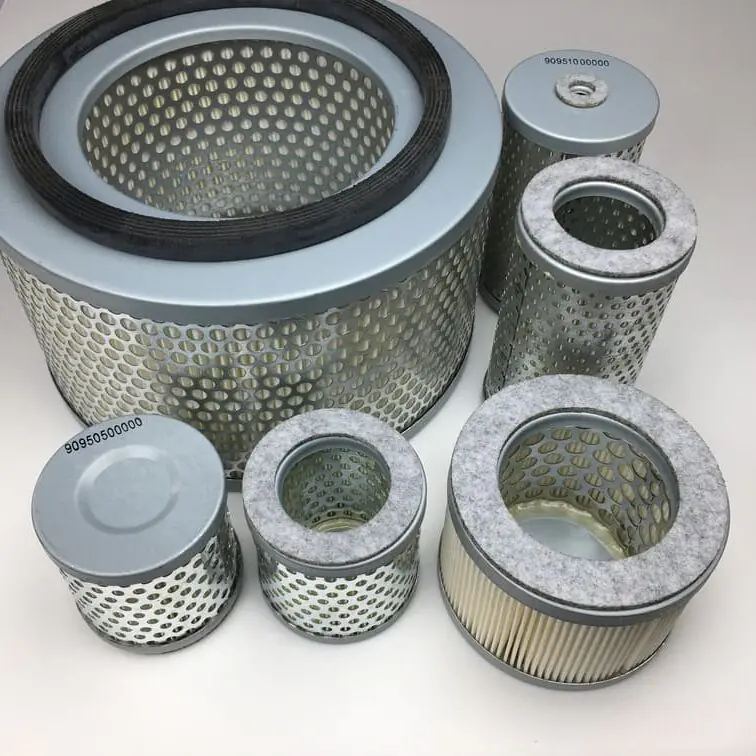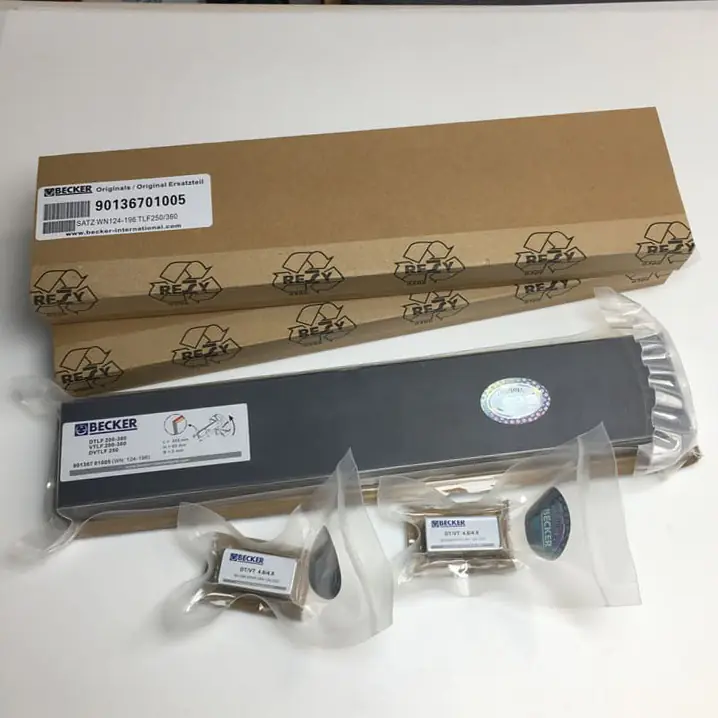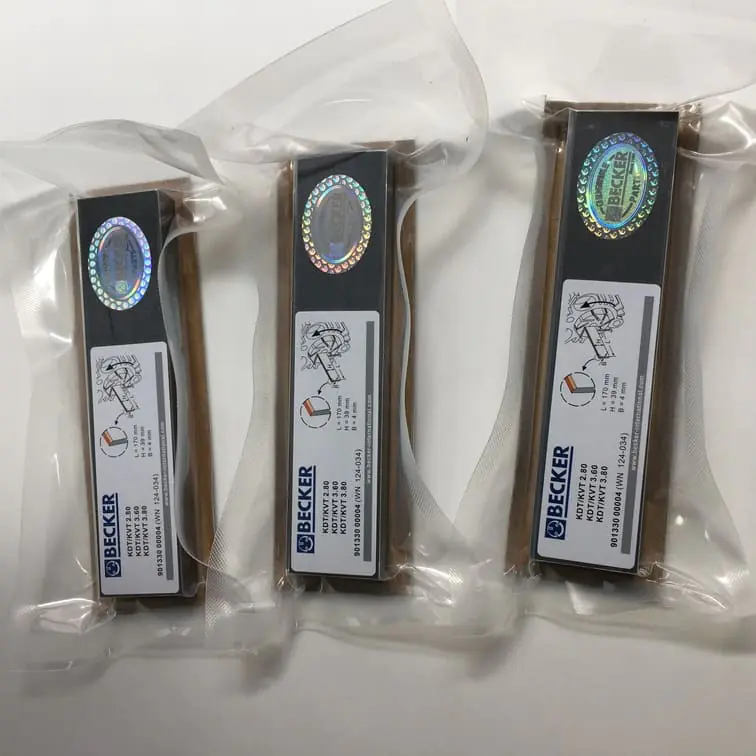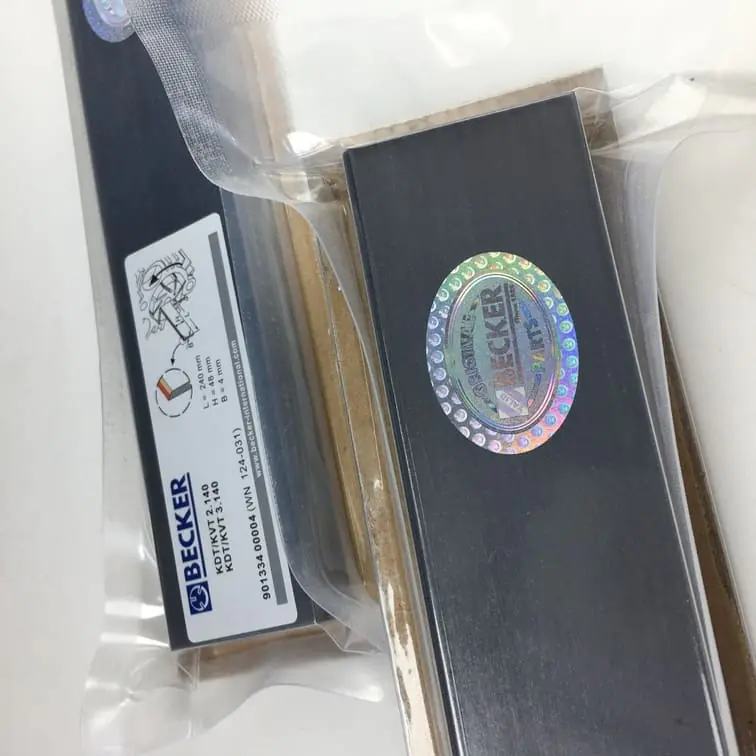What Oil Do You Use in a Vacuum Pump?
Understanding the right type of oil for your vacuum pump is crucial for maintaining optimal performance and ensuring the longevity of your equipment. Oil acts as both a lubricant and a sealant in many vacuum pump types, and choosing the right one can significantly affect the efficiency of the pump. This article will explore what oil do you use in a vacuum pump, the different types of oils available, their roles, applications, and how to choose the best oil for your specific pump type.
1. Why is Oil Important in a Vacuum Pump?
Vacuum pump oil serves a crucial function in various vacuum pumps, especially those categorized as oil-sealed pumps. It plays several roles, including:
- Lubrication: The oil reduces friction between moving parts inside the pump, which minimizes wear and prolongs the life of the equipment.
- Sealing: The oil acts as a seal between high and low-pressure sides, preventing the entry of air into the vacuum chamber.
- Cooling: The oil absorbs heat produced by the compression of gases, which helps in maintaining the pump at an optimal operating temperature.
Without the right oil, your vacuum pump can suffer from increased wear, overheating, or reduced efficiency, making proper oil selection essential.
2. Types of Vacuum Pump Oils
There are several types of vacuum pump oils available, each with its unique properties tailored for different applications:
2.1 Mineral Oil
Mineral oil is the most commonly used vacuum pump oil. It is refined from crude oil and is suitable for general-purpose applications. Mineral oils are often chosen due to their affordability and availability.
- Pros: Cost-effective, suitable for standard applications.
- Cons: Susceptible to contamination, less effective at higher temperatures.
2.2 Synthetic Oil
Synthetic oils are engineered specifically to enhance performance in demanding conditions. These include polyalphaolefin (PAO) and ester oils.
- PAO Oil: PAO oil is a synthetic hydrocarbon that offers superior thermal stability and low volatility, making it suitable for high-temperature applications.
- Ester Oil: Ester oils provide excellent lubrication and chemical resistance. They are often used in environments involving aggressive gases.
- Pros: High resistance to oxidation, better performance under extreme conditions.
- Cons: Higher cost compared to mineral oils.
2.3 PFPE Oil
Perfluoropolyether (PFPE) oils are inert and highly resistant to both chemical reactions and high temperatures. They are ideal for specialized applications that demand chemical stability.
- Pros: Exceptional thermal stability, chemically inert.
- Cons: Very expensive, typically used for niche applications.
Comparison of Oil Types
| Oil Type | Thermal Stability | Cost | Common Applications |
|---|---|---|---|
| Mineral | Moderate | Low | General Vacuum Applications |
| Synthetic | High | Medium | High-Performance Systems |
| PFPE | Very High | High | Chemical, Semiconductor |
3. How to Choose the Right Oil for Your Vacuum Pump
When selecting vacuum pump oil, there are several key factors to consider:
- Pump Type: Different pump types require different oils. Rotary vane pumps commonly use mineral or synthetic oils, while diffusion pumps might require specific synthetic variants.
- Temperature: The working environment’s temperature plays a huge role. If your pump operates at elevated temperatures, choose an oil with high thermal stability such as synthetic or PFPE oil.
- Chemical Compatibility: Consider the type of gas or vapor that the pump is handling. If the gases are chemically aggressive, PFPE oils might be necessary due to their inertness.
- Operational Load: The load on the pump influences oil choice. Pumps that handle high vacuum levels or that operate continuously require oil with superior properties like low vapor pressure and excellent thermal resistance.
4. Understanding the Role of Oil in Different Vacuum Pump Types
Not all vacuum pumps use oil. However, for those that do, the oil plays a specific and essential role depending on the pump type:
4.1 Rotary Vane Vacuum Pumps
Rotary vane pumps are among the most common vacuum pumps used in industries like HVAC, laboratory work, and automotive. They rely on oil for both lubrication and sealing. The right oil ensures the smooth movement of vanes and effective sealing of the vacuum chamber.
4.2 Diffusion Pumps
Diffusion pumps also require special oils with very low vapor pressure to create a high vacuum. The oils used here, often high-grade synthetics, need to withstand high temperatures without breaking down.
4.3 Dry Vacuum Pumps
Dry vacuum pumps do not require oil for sealing or lubrication. Instead, they use mechanical means like screws or claws to achieve vacuum without any contamination, making them suitable for sensitive applications like food packaging and pharmaceuticals.
5. Benefits of Using High-Quality Vacuum Pump Oils
Using high-quality oil in your vacuum pump can provide multiple benefits that contribute to both the performance and longevity of the equipment:
- Reduced Wear and Tear: High-quality oils provide better lubrication, reducing friction between parts and minimizing wear.
- Enhanced Sealing Efficiency: Proper viscosity ensures that the oil acts as an effective sealant, which is essential for maintaining a stable vacuum level.
- Improved Thermal Management: Oils with better thermal stability help manage the heat produced during pump operation, preventing overheating and prolonging the pump’s lifespan.
- Longer Maintenance Intervals: Synthetic oils typically offer longer service life compared to mineral oils, reducing the frequency of oil changes and associated maintenance downtime.
Quick Comparison: Mineral vs. Synthetic Oils
| Property | Mineral Oil | Synthetic Oil |
|---|---|---|
| Cost | Low | Medium to High |
| Oxidation Resistance | Moderate | High |
| Thermal Stability | Moderate | High |
| Maintenance Interval | Shorter | Longer |
6. How Often Should You Change Vacuum Pump Oil?
The frequency of oil changes in a vacuum pump depends on several factors, including the type of pump, the operating environment, and the nature of the gases being pumped.
- Light Use: For pumps used occasionally in a clean environment, changing the oil every 500-700 hours of operation might suffice.
- Heavy Use: For pumps under continuous use or in harsh conditions, oil should be checked and potentially changed every 300-500 hours.
Regular oil changes are crucial to maintaining pump performance. Contaminants such as particulates, water vapor, and chemical residues can degrade oil quality, leading to increased wear or even pump failure.
7. Signs That Your Vacuum Pump Oil Needs Changing
To avoid potential issues, it’s important to monitor the condition of your pump oil. Here are some signs that indicate an oil change is necessary:
- Discoloration: If the oil has turned dark, it may have been contaminated or oxidized.
- Unusual Odor: A burnt or strange odor indicates the oil has degraded and should be replaced.
- Decreased Pump Performance: If you notice that the pump is taking longer to achieve a vacuum, it could be due to oil losing its sealing and lubricating properties.
Regularly inspecting the oil’s condition helps maintain pump efficiency and avoids unexpected breakdowns.
8. How to Change Vacuum Pump Oil
Changing the oil in a vacuum pump is a straightforward process that should be part of your regular maintenance routine. Here are the steps to ensure a proper oil change:
- Turn Off the Pump: Make sure the pump is powered down and has cooled to a safe temperature.
- Drain the Old Oil: Locate the drain valve and allow the old oil to completely drain out. Ensure you have a suitable container to catch the used oil for proper disposal.
- Inspect for Contaminants: Look for metal particles or unusual discoloration in the drained oil, which can indicate wear or contamination.
- Refill with New Oil: Add the new oil slowly, checking the level to ensure it stays within the manufacturer’s recommended range.
9. Importance of Using Manufacturer-Approved Oils
Using manufacturer-approved vacuum pump oils is crucial for maintaining warranty validity and ensuring optimal performance. Manufacturers typically recommend specific oils because they meet the pump’s operational requirements.
For instance, pumps from brands like Edwards or Leybold have their proprietary oils formulated specifically for their design. Using non-recommended oil could lead to operational issues, reduced efficiency, and even pump damage.
10. FAQs About Vacuum Pump Oil
1. Can I use motor oil in my vacuum pump?
No, motor oil is not suitable for vacuum pumps. It lacks the specific properties needed for vacuum creation, such as low vapor pressure and resistance to chemical contamination.
2. How do I know which oil is right for my pump?
Refer to the manufacturer’s recommendations or consult with an expert. The right oil depends on factors like the pump type, operating conditions, and the type of gases being pumped.
3. Why is my vacuum pump oil turning dark?
Dark oil can be a sign of contamination or thermal degradation. It should be replaced promptly to prevent pump damage.
4. Can synthetic oil improve my pump’s performance?
Yes, synthetic oils offer better thermal stability and oxidation resistance, which can enhance pump performance, especially under demanding conditions.
5. How do I dispose of used vacuum pump oil?
Used vacuum pump oil should be disposed of at a certified disposal facility to ensure environmental safety. Never pour used oil down the drain or into regular trash.
6. How much oil does a typical vacuum pump need?
The amount of oil required depends on the pump size and type. Always check the manufacturer’s specifications for accurate information.
11. Conclusion
The correct vacuum pump oil is essential to the efficient operation of your vacuum pump. Whether you are using a rotary vane pump, diffusion pump, or another type, selecting the appropriate oil is crucial for optimal performance, reliability, and longevity. Different oils—such as mineral, synthetic, or PFPE—serve unique purposes, depending on the demands of the application. By ensuring you have the right oil and maintaining it properly, you can avoid many of the common issues that lead to pump failure and increased operational costs.
For more information about vacuum pump oils, maintenance, or spare parts like carbon vanes and filters, you can explore our collection at Vacuum Pump Spare Parts. We offer a wide range of products designed to keep your vacuum systems in top condition for years to come.




